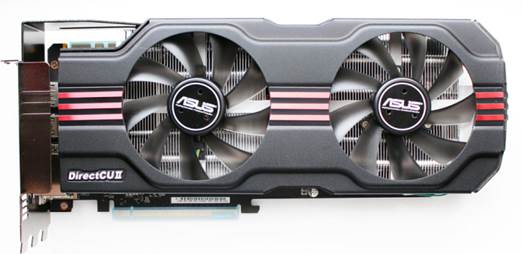Every single participated graphics card was
tested in a system with the following configuration:
·
Mainboard: Intel Siler DX79SI (intel X79
Express, LGA 2011, BIOS 0494)
·
CPU: Intel Core i7-3960X Extreme Edition, 3.3
GHz, 1.2V, 6 x 256 KB L2, 15 MB L3 (Sandy Bridge-E, C1, 32 nm);
·
CPU cooler: Phanteks PH-tC14PE (Fan 2 x 135 mm);
·
Thermal interface: ARCTIC MX-4;
·
System memory: DDR3 4 x 4 GB Mushkin Rredline
(Specs: 2133 MHz/9 – 11 – 10 – 28/ 1.65 V);
·
System drive: Crucial m4 256 GB SSD (SATA-III,
CT256MaSSD2, BIOS v0009);
·
Drive for games and programs: Western Digital VelociRaptor
(3000 GB, SATA-II, 16 MB cache, NCQ), inside Scythe Quiet Drive 3.5” HDD
silencer and cooler.
·
Backup drive: Samsung Ecogreen F4 HD204UI
(SATA-II, 2 TB, 32 MB, NCQ);
·
System case: Antex Twelve Hundred (front panel:
three NoiseBlocker NB-MultiFrame S-Series MF12-S2 fans; back panel: two
Noiseblocker NB-BlackSilentPRO PL-1 fans at; top panel: standard 200m fan);
·
Controlling and monitoring panel: Zalman
ZM-FMC3;
·
Power provider: Seasonic SS-1000XP Active PFC F3
1000W (with one default 120 mm fan);
·
Monitor: 27” Samsung S27A850D (DVI-I, 2560x1440,
60 Hz).
As we have
mentioned above, beside the individual graphics accelerators, we also checked
the performance of a configuration built on two HIS 7850 IceQ Turbo X cards:

The
configuration that is built on two graphics cards
There is no problem installing drives for
this configuration, the CrossFireX mode is activated automatically

CrossFireX
is activated automatically
To compare HIS 7970 IceQ X2 GHz
Edition with HIS 7950 IceQ X2 Boost Clock, we also included one of
the fastest graphics cards on GeForce GTX 680 – Asus GeForce GTX 680 DirectCU
II TOP 2 GB (GTX680-DC2T-@gD5);

Asus
GeForce GTX 680 DirectCU II TOP 2 GB

The
fastest graphics card on GeForce GTX 680
To limit the dependence of the graphics
cards on the general based speed, we overclocked our 6-core CPU 32 nm with the
multiplier of 37x, the BCLK frequencies of 125 MHz and activating “Load-line
Calibration” up to 4.625 GHz. The Vcore processor was increased 1.49V in the
BIOS mainboard.
The Hper – Threading technology is allowed,
16GB of the DDR3 system memory works at the frequency of 2 GHz within the
periods of time of 9 -10-10-28 and the voltage of 1.65V.
The test began on 17/01/2013. All of the
tests were conducted on Microsoft Windows 7 Ultimate x64 SP1 with all crucial
update at that moment and the following drive:
·
Intel Chipset Drivers 9.3.1 1009 WHQL for the
mainboard chip;
·
DirectX End-User Runtimes library;
·
Driver AMD Catalyst 13.1 WHQL (9.12.0.0) -
Catalyst Application Profiles 12.11 (CAP2) for graphics cards based on AMD.
·
Driver Nvidia Geforece 310.90 WHQL for graphics
cards based on Nvidia.
We conducted our
test on two resolutions 1920x1080 and 2560x1440. The tests were conducted on
two image modes: “Quality + AF16x” with enabled 16x anisotropic filtering and
full screen 4x or 8x antialiasing if the average frame rate was good enough to
experience the games comfortably. We enabled anisotropic filtering and full
screen antialiasing from the game installation. If the corresponding options
were missing, we changed the setting in Control Panels of the Catalyst and
GeForce drivers. We also turned off the Vsync there. There is no change in
controlling setting.
As we considered many graphics cards basing
on Radeon HD 79xx and HD78xx with many different drivers up to now, the list of
games and applications using in this test was shortlisted and including a
popular semi-synthetic benchmarking program and 9 newest games in many types
with all of the updates installed at the moment the test started.
3DMark 2011
(DirectX 11) – version 1.0.3.0, Performance and Extreme configuration;
Metro 2033: The Last Refuge (DirectX 10/11) – version 1.2, installing the maximum quality
graphics, official benchmark, high quality images; tessellation, DOF and MSAA4x
off; activated AAA aliasing, operating continuously two “Frontline” frames;
Total War: Shogun 2: Fall of the Samurai (DirectX 11) – version 1.1.0, inside benchmark (Sekigahara battle)
in the maximum quality graphics setting and enabled MSAA 4x in a testing mode.
Crysis 2
(DirectX 11) – version 1.9. We used Adrenaline Crysis 2 Benchmark Tool
v.1.0.1.14.BETA and the configuration with “Ultra high” graphics quality and
activated HD texture, two runs of a demo was recorded at “Times square” level.
Battlefield 3 (DirectX 11) – 1.4 version. All images were set at “Ultra” quality,
continuously ran a scene from the beginning of “Going Hunting” with a 110
second long mission.
Sniper Elite V2 Benchmark (DirectX 11) – version 1.05. We used Adrenaline Sniper Elite V2
Benchmark Tool v1.0.0.2BETA with the maximum graphics quality setting (“Ultra”
configuration), Advanced Shadows: HIGH, Ambient Occlusion: ON, Stereo 3D: OFF,
running two sequential tests.
Sleeping Dogs (DirectX 11) – version 1.5. We used Adrenaline Sleeping Dogs
Benchmark Tool V1.0.0.3 BETA, maximum graphics quality setting, Hi-res Textures
installation package, FPS Limiter and V-Sync off, continuously operating two
inside benchmarks with the Normal and Extreme antialiasing quality level,
F1 2012
(DirectX 11) – 10 update, we used Adrenaline Racing Benchmark Tool v1.0.0.13
with the “Ultra” graphics quality setting throughout two laps on Brazilian
“Interlagos” with 24 other cars and a drizzling rain; we also used “Bonnet”
mode for the camera.
Borderlands 2 (DirectX 11) – version 1.3.1, the inside benchmark with the maximum
image quality and the maximum level for PhysX, enabled FXAA.
Hitman: Absolution (DirectX 11) – version 1.0, inside testing with the Ultra image
quality setting, enabled tessellation, FXAA and global lightning.
If the games
allowed recording the minimum fps readings, they were also added in the graph.
We ran each game or benchmark two times and take the best result for graphing,
but only when their difference was no more than 1%. If it was more than 1%
different, we conducted the test at least once to take the repeated result.